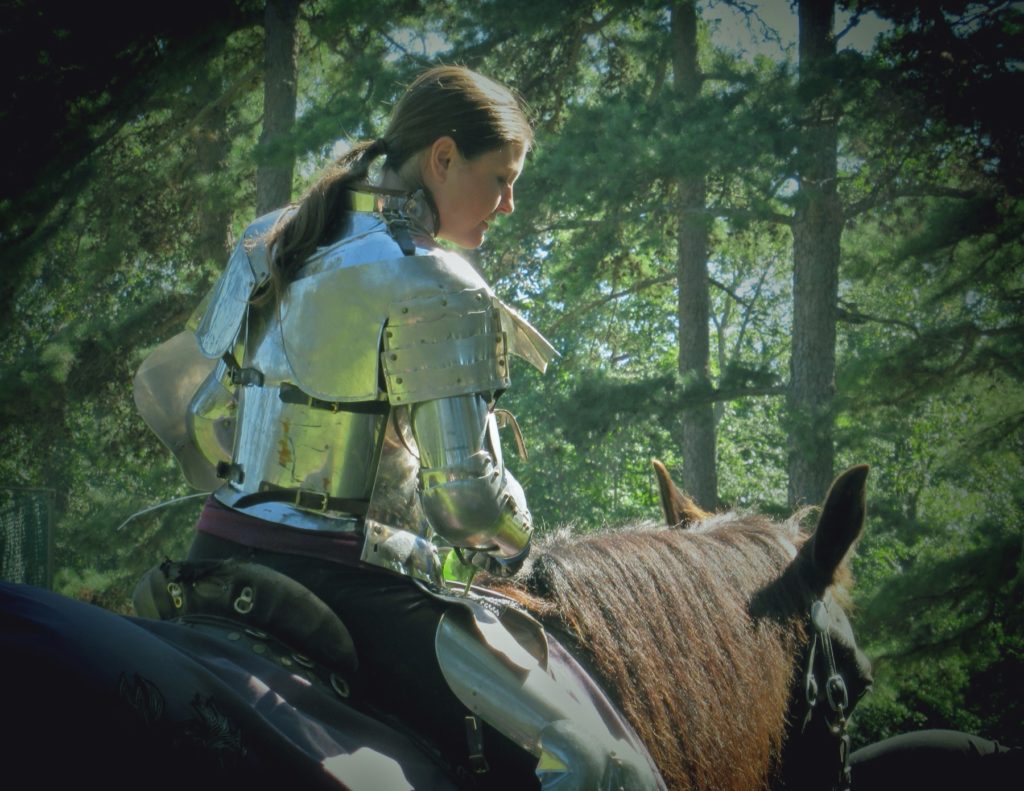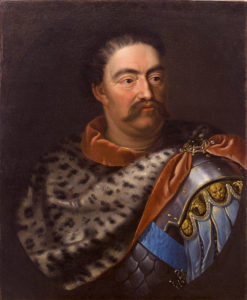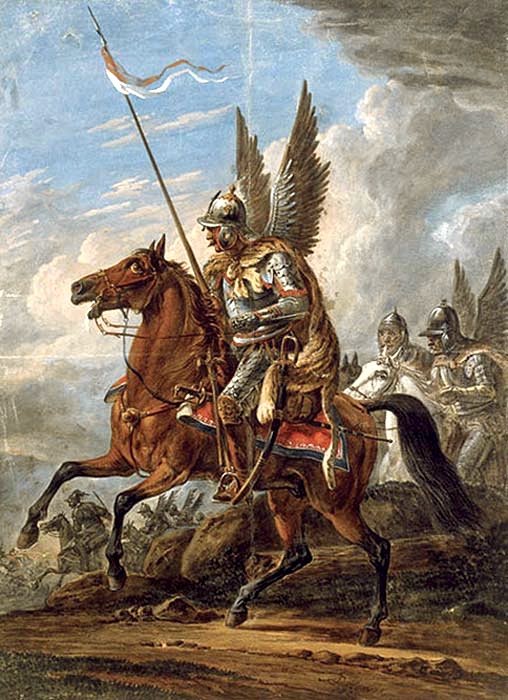A new Roma Nova short story set in the 17th century. What was Roma Nova’s role in the Battle of Vienna, the desperate fight to stop the last Ottoman advance into Europe? And who led the Roma Novan legionaries? Read on…
Midnight, 12 September 1683, at the gates of Vienna
‘How many dead, senior centurion?’ she asked.
‘Eighteen, domina. Plus the tribune, plus wounded.’
Honoria Mitela didn’t flinch. She knew better than to show it in front of the troops – she was their prefect, commander of this detachment – but an iron fist clamped her heart. Although she’d led small campaigns at home in the borderlands, this was her first overseas. And the last that almost twenty daughters and sons of Roma Nova would ever fight.
The damp air swirled round them. Not the storms of the journey here, or honest rain, but a miasmic clinging damp that spread the smell of dead warriors’ blood and rotting horseflesh. She pulled her cloak tighter.
‘Detail the remaining company find the bodies,’ she ordered. ‘All of them.’
The senior centurion glanced at her. He looked bone tired. His leather cuirass was spattered in blood and part of his chain shirt had ripped, but he drew himself up, saluted and strode down the hill, barking orders.
The previous day, 11 September 1683, command post Kahlenburg Heights, north of Vienna
‘What’s the worst?’ Honora asked.
‘A gap over thirty feet wide.’ A collective murmur ran round the tent from the assembled imperial Austrian and Polish commanders. Scattered among them were officers from Saxony, Bavaria, Baden, Franconia and Swabia.
‘Starhemberg’s Viennese garrison have been trying to counter this by digging their own tunnels to intercept the damned Turks, to stop them placing large amounts of gunpowder there,’ Sobieski continued.
‘And?’
‘Unfortunately, the Ottomans have succeeded occupying the Burg ravelin and the low wall in that area. But the Viennese have reinforced the defences as best they can.’ He looked at Honoria. ‘They are prepared to fight for every inch in the inner city.’
Honoria’s heart sank. Mining and blasting were Roman skills and she knew too well how effective they were for eventually breaching the most formidable ramparts. Thirty feet was a huge gap to defend with the best will and most courageous hearts in the world. And her intelligence gatherers had told her that the Viennese were not only starving but weakened by months of plague. She rubbed her forehead.
‘Is there no way of honourable settlement?’ She shivered as she remembered reading accounts of the fall of Constantinople to the Ottomans last century. It, too, had been weakened, but unlike Vienna, Constantinople then was underpopulated and dilapidated; by the 1450s outside the city itself and in parts within it, it had been little more than a cluster of villages separated by fields. Vienna, on the other hand, was the capital of the Austrian empire, a great city of the West.
‘No. The Ottomans started the siege on back in July. Kara Mustafa Pasha sent the traditional demand that the city surrender, but Count von Starhemberg refused to capitulate.’ Sobieski took a deep draught from the silver cup his servant handed him.
‘Could he not secure terms?’ Honoria asked.
‘Terms? From the Turks? Ha!’ Sobieski’s tone of voice was a mix of contempt and anger. ‘Just before he closed the gates to Vienna, Starhemberg received news of the mass slaughter at Perchtoldsdorf, south of here. The townspeople had handed over the keys of the city after being given a similar choice, but they were slaughtered anyway. Apart from the children who were taken into slavery, that is.’ Sobieski looked directly at Honoria. ‘Starhemberg shouted over the walls at Kara Mustafa Pasha that they’d fight to the last drop of blood.’
‘Very well,’ she replied. ‘Then we make our stand here. We are only a company, but it will be Roma Nova’s honour drive back the enemy sappers and destroy them. Then we will repair and defend the walls.’
‘But, Excellenz, you cannot send women to confront the janissaries guarding the sappers.’ The Polish king, sturdy and imposing in his luxurious blue robes, had stared at her. She was dressed more simply with tunic and light cuirass over a chain mail shirt; long boots over breeches, a maroon cloak and the legionary’s scarf at her neck. Around her waist, a belt held her gladius and pugio dagger. She crossed her arms and raised her head.
‘My soldiers are legionaries first and women and men afterwards. Be assured, John Sobieski, you will not find them lacking.’ She relaxed her frown. ‘And Romans have much experience in siege warfare and mine science.’
‘Not that it helped your cousins in Byzantium two hundred years ago,’ one of the Imperial Austrians muttered and sniggered. Honoria turned her stare on him.
‘That, Herr Graf, was betrayal by a religious. I will not bore you with my opinion upon that subject.’
After a few heartbeats, the Austrian looked away, his cheeks tinged pink. Honoria bought her attention back to Sobieski.
‘Are we agreed? My tribune Tellus will lead them. I will retain a small Praetorian detail with me.’
‘We will be in your debt, of course,’ the Polish king said. But from the tone of his voice he didn’t sound convinced. Nevertheless, Honoria nodded to Tribune Tellus and they left the command tent together.
As they walked back to the Roma Nova camp in the light of the bonfires flaring over the heights, Honoria drew Tellus to one side.
‘I’ll leave tactics to you, Tellus, but after an initial wedge to smash through, I suggest you re-form into a crescent to contain and eliminate the troops guarding the enemy sappers. Sobieski has given us some of his Poles as backup to the initial assault. Put them in three lines. Keep our best cavalry on the flanks of the curve. We don’t want the Turks breaking back in to stop our work.’ He nodded, his eyes already unfocused while his brain worked out his orders to the troops. ‘A word of warning…’ Honoria lowered her voice. ‘When you get down by the wall, don’t explain anything about any of your engineering methods to the Christians. Try to hide any complex mechanics or materials, otherwise you risk being called an alchemist at best or a wizard at worst. If proven – and their priests may well try hard – they’ll try to burn you alive as a demonic blasphemer.’
He turned pale and looked as if he would vomit up this food.
‘Caution the troops to be equally careful. Perform your tasks, then withdraw your specialist engineers. The remaining troops and the Poles will stay to guard the area. Hopefully, the Christians will be too thankful to remember much of what they’ve seen.’
Tellus called the centurion and with four hundred troops set off on his way to the south of Vienna. She knew the Roma Novans would travel quickly unhindered by a baggage train; they carried all their equipment and weapons on them.
She brought her hand up to shade her eyes as she observed the Turkish encampment. A dim haze of smoke rose from the constant artillery barrage, exploding mines, and campfires as the siege below continued.
She couldn’t help speculating whether her earlier, more subtle play that she hadn’t mentioned to John Sobieski, was also performing. If the allied troops were to win the battle and save Vienna then it must needs work.
Two months earlier, July 1683, Praetorian compound, Roma Nova
A knock at her door.
‘Come,’ she said as she sanded her letter and sealed it. She looked up to see Tellus, the young ingeniarius tribune who had joined them only three months ago. The XX Victis legion had endured enough of his inventions and ‘controlled’ experiments that went awry, his previous prefect’s report said, but Honoria welcomed such an addition to her intelligencer group. Now, he stood nervously in front of her.
‘Yes?’
‘I wasn’t sure whether to bring this to you, prefect…’
‘Well, you did, so what is it, young man?’
He shuffled his feet.
‘One of the patrols was called in by Antonia – the daughter of the woman who runs the mansio on Via Nova. I was, er, fixing something for her.’ He flushed. Honoria smiled. ‘Anyway,’ Tellus continued, ‘she said a man, a foreigner, was asking too many questions about too many things.’
‘Be specific.’
‘My apologies, domina. About our military, our horses, how we guarded our frontiers.’
‘Where is this man now?”
‘Chained up in the castle dungeon.’
‘Where he should be.’
‘But the strange thing was that he knew your name, domina.’
‘Then it seems I should be the one to question him.’
Honoria handed her horse over to a guard and made her way down the stone steps to the castle dungeons. The candle flame flickered inside her lamp as she entered the questioning room. The man hung attached to a chain suspended from a high beam. His feet just touched the beaten earth. Even in the half-light of the torches on the walls she could see his face was bruised, an eye almost closed. A guard punched him in the back. The man grunted and but merely looked ahead. As the punishment officer raised his whip, Honoria stepped in.
‘Enough, optio, you may withdraw.’
He hesitated.
‘Hard nut, this one, prefect. Can’t even get his name out of him.’
‘Did it occur to you to simply ask?’
‘Yes,’ the optio admitted and grunted. ‘But all he said was your name and nothin’ else.’
‘Cut him down and find him a chair,’ Honoria snapped. ‘Bring another lamp and some water.’
As he gulped his beaker of water, Honoria examined the prisoner. He was well-made, muscular, his dark hair not quite black even in this poor light. She estimated him to be in his thirties. When he looked up, his eyes were blue-grey like the northern sea at the end of the amber route. She blinked. The light flickered on his skin. Her heart pulsed harder than usual. Despite the chill of the stone walls, warmth crept up from her middle to her heart and up her neck. She swallowed. But the warmth fled the instant she saw the mark on the inside skin of his upper arm – a stylised T. She pulled herself up straight, crossed her arms and forced her voice to be as hard as she could make it.
‘Now why is a Tatar spying in Roma Nova?’ she asked in her best Ottoman Turkish.
He stared at her but said nothing. He kept his gaze fixed on her face.
‘Please do not pretend you do not understand me,’ she continued. The lamps flickered, casting shadows on the man’s angular face. Yet he still said nothing. Honoria bent closer. ‘Since a large number of Tatars under Khan Giray have arrived east of Vienna to reinforce the siege, I must assume that you have come to assess our strength here.’ The man’s face tightened around his eyes. ‘We have our informers, too.’ She stood up straight and took a deep breath. ‘Your life is forfeit,’ she said. He blinked. ‘But if you tell me what I want to know, it is in my gift to spare you.’
‘You are truly Mitela? The chief of the intelligencers?’ His voice was hard, but she heard the fear in it.
‘I am.’ She touched the myrtle leaf badge of her family which pinned her cloak. She could hardly take her next breath.
He brought his manacled hands up to his face and gave a deep sigh.
 ‘His name is Aydar, legate, and he is a bastard son of Khan Giray.’
‘His name is Aydar, legate, and he is a bastard son of Khan Giray.’
Honoria stood stiffly in front of the senior legate in the praetorium at the centre of the camp compound.
‘And?’ The legate lent back, her gold edged cloak falling away from her shoulders to rest in crimson folds on the chair back. She frowned at Honoria. ‘Then execute him.’
‘If it pleases you, domina,’ Honoria continued, ‘I think we may use this to our advantage.’ The legate raised one eyebrow. ‘You remember the letters from Sobieski asking for our aid in relieving the Vienna siege?’
‘Of course, but the damned imperial council is still trying to convince the imperatrix that the Ottomans wouldn’t dare attack us.’ She snorted. ‘We lie on the edge of their territory, admittedly the other side of a mountain barrier, but nevertheless only fifteen miles away, for the gods’ sake!’ The legate’s face threatened to take on the red of her cloak.
‘Just so, domina,’ Honoria replied. ‘In my humble estimation, although the mountains have protected us in past ages, if the Ottomans prevail in taking Vienna, we are in peril of destruction. We must stand with the Poles and Austrians.’
‘I fully agree with you, Mitela. Try getting your mother to convince the rest of the council to sanction our expedition.’
‘Be assured, legate, Comes Mitela is bringing every drop of eloquence to the matter to so persuade her peers.’ Honoria closed her lips tight. In truth, her mother was fighting the rest of the council’s over-caution tooth and nail and using every political stratagem she knew. ‘Nonetheless,’ Honoria continued, ‘my scouts report all is not well between Tatar and Ottoman. The former owe allegiance to the latter and must perforce march with them. I estimate twenty thousand Tatars east of Vienna. This Aydar was sent to Roma Nova to spy, but under duress. He is hardly recognised in his family as his mother was ‘harvested from the steppes’ as they euphemistically call their slave-raiding. So he has little love for his father and clan, especially as they branded him with their tamga when he ran away at eight.’
‘Then why in Hades did they send him now?’
‘Because he can pass as a European. And they still hold his mother. He saw it as a way to escape. Somehow, he knew I led the intelligencer group.’
‘Hm. But how does this help us?’
‘Sobieski’s latest dispatch again asks us for our help. I volunteer herewith to lead such a vexillatio. Sobieski says the southern walls are in peril. We cannot offer thousands of troops without our council’s approval, but we can provide engineering skills discreetly. But I think we could also attack in a different way, on their minds, their fears.’
‘How? No, first, tell me how you gained this Tatar spy’s confidence.’
‘I offered him his life.’
‘And how do you know he won’t turn his coat again?’
‘I assured him of lifelong sanctuary. I also promised I would hunt him down personally to the end of days if he betrayed us.’
But Honoria had not told the legate the whole truth. She had had Aydar escorted under guard to the Domus Mitelarum. He might be more forthcoming in a softer atmosphere of a home than in the castle dungeon, she told herself. And he was now their ally.
Honoria, you are attempting to deceive yourself.
As she stood on the parade ground outside the legate’s office she kicked a stone on the path. It was for a much stronger reason than mere statecraft.
At the end of July, Aydar the Tatar set out from courtyard of Domus Mitelarum with two pack-horses, their saddlebags full of Tellus’s latest ‘inventions’. Aydar had twisted round with the assurance of a horseman almost born in the saddle. His sea-grey eyes haddn’t left Honoria’s face until the porter had closed the gate behind him.
Dawn, 12 September Kahlenberg Heights, Vienna
Now, in the sharp chill of a late summer morning, Honoria led her remaining contingent of Roma Novan Praetorians in a sacrifice to Mars. As they solemnly ate the roast pork after the ceremony, while the fire still smoked, Honoria wondered if Mars knew where the troops had ‘acquired’ the pig. She merely hoped the farmer had been compensated but decided not to ask.
Their camp was shielded by a stand of trees from the nearest Christian troops who might have taken exception to the Roma Novans’ ‘paganism’. But since the Aquileia incident, the Christians had grudgingly left Roma Nova alone on the matter of religion. Once she had given the troops the god’s blessing, they quietly gathered their arms – spatha, arm shield and lances – and in silence prepared their screw-barrelled pistols, three for each of them.
Riding from the southwest through dense woods and the day’s warmth, and fending off a Turkish scouting party, they caught up with Sobieski on the Michelerberg.
‘Salve,’ Sobieski greeted her, insisting on speaking his accented Latin to her instead of Germanic. He pointed down to the plain. ‘The damned Ottomans continue in their efforts to force their way into the city. They should concentrate on fighting us!’
Honoria gave permission for her small band to join with the hussars in harrying actions, battering the Ottoman lines and pushing forward. By the end of the afternoon, they had hemmed in the enemy from three sides. And the embattled city of Vienna lay plainly before them.
‘Now we take them,’ Sobieski shouted his hand waving his marshal’s baton in a circular motion high above his head. Honoria tightened her helmet, grasped her lance and whispered a quick prayer to Mars. She thrust her knees into the side of her mount and launched herself at the side of the Polish king.
With the cry of “Jezus Maria ratuj” the whole Polish line rode down upon the Turks. Armed with kopia lances, sabres, pistols and battle hammers, and mounted on a powerful chargers, the hussars thundered down the hill. Encased in glittering steel that covered head to thighs, with their tiger and leopard pelts fluttering in the wind and wings of eagle feathers affixed to their backs, the leading units fell on the Ottomans like an unearthly force of avenging Furies.
Ten days later, 1683, Praetorian compound, Roma Nova
‘Very good,’ the legate said, laying down her eyeglasses on top of Honoria’s report on her great desk. ‘But you didn’t stay after Sobieski’s triumphal march into Vienna?’
‘No, domina. Our work was done.’ Honoria looked straight at the far wall.
‘Now tell me the true reason.’
‘It wasn’t the pillaging of the Ottomans’ treasures – that’s the natural outcome of war – but summary killing of every wounded or sick enemy soldier disgusted me. It wasn’t merciful dispatching of dying men – it was murder. Pure bloodlust. I know the Turks had slain many of their Christian captives and even carried some away with them in their retreat, so I suppose the Viennese wanted their revenge and the Poles didn’t hold back.’ Honoria ran her hand down her cheek. ‘I admire Sobieski as a general and was honoured to participate in the charge, but when he turned and said Veni, vidi, Deus vicit while drinking out of the Ottoman vizier’s looted cup shortly afterwards, I knew it was time to depart.’
‘You’re becoming soft, Honoria.’ The legate’s voice was firm, but Honoria saw some sympathy in her eyes. ‘But your ruse to attack their minds, their morale. Did it work? More importantly, did it have any effect?’
‘I believe it did,’ Honoria replied. ‘Although Sobieski’s reputation as hammer of the Tatars probably dispirited them generally, Aydar’s rumours of Roma Novan djinns as evidenced by Tellus’s chemical bombs would have done the rest. My scouts reported that the Tatar khan refused to pass through the Greek fire to attack the imperial relief force as it crossed the Danube on the pontoon bridges. And refused again when the Austrian imperials emerged in a blaze of fire from the Wienerwald.’
‘And your Tatar spy? What has become of him?’
‘I have no report of him, domina,’ Honoria replied in a dull tone of voice.
‘We must perforce make unusual alliances and personal sacrifices to protect Roma Nova, Mitela.’
‘Agreed, domina.‘ Honoria took a long breath to calm herself and recapture her soldier’s detachment. ‘I believe we will no longer see the Ottomans so far west or north again. But I feel it will not be many decades before they break apart and their empire sinks, Jupiter willing.’
‘Go and rest. Go and look to your farm at Castra Lucilla and return when your heart and spirit are healed.’
Saturnalia, 17 December 1683
Refreshed from her weeks at her farm and back into a calmer routine at the Praetorian camp, Honoria Mitela passed through the vestibule in Domus Mitelarum on the first day of the holiday. The new house built round the original settlers’ villa still reeked of masons’ marble dust and plaster; not the smells of a usual Saturnalia. A servant took her cloak helmet, gladius and belt and handed her a cup of wine. She dropped onto the silk cushions on the settle and stared into the fire.
‘If you please, domina.’
A young servant held out a silver tray with a grubby folded letter. It was bound with string and sealed with a red wax circle. Inside the seal was a stylised T, the tamga. Honoria sat upright and unfolded the letter, almost tearing it in her haste.
Greeting, honoured and valorous lady.
I am in the Free City of Trieste.
My mother is sadly dead, a victim to Kara Mustafa Pasha’s revenge but he is to be executed in Belgrade by strangulation on the Christians’ holy day, the 25th day of December – an irony you will appreciate.
Will you grant me safe conduct to come to Roma Nova?
I anticipate our renewed encounter very soon.
Aydar the Tatar
A longer version of the story originally posted as part of the StorySong festival in December 2019 with the accompanying music ‘Sarabande’ by Handel (also used in films Black Hawk Down and Barry Lyndon)
Alison Morton is the author of Roma Nova thrillers – INCEPTIO, PERFIDITAS, SUCCESSIO, AURELIA, INSURRECTIO and RETALIO. CARINA, a novella, and ROMA NOVA EXTRA, a collection of short stories, are now available. Audiobooks are available for four of the series. NEXUS, an Aurelia Mitela novella, is now out.
Download ‘Welcome to Roma Nova’, a FREE eBook, as a thank you gift when you sign up to Alison’s monthly email newsletter. You’ll also be first to know about Roma Nova news and book progress before everybody else, and take part in giveaways.


















This was an enthralling story, and I hope you write more about Honoria someday.
Thank you, Juliet. I was rather taken with Honoria as I wrote her, I have to admit. That whole period was one of great change in Europe, so I may need to investigate further. 😉